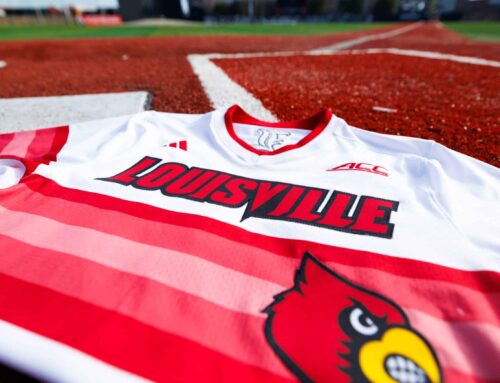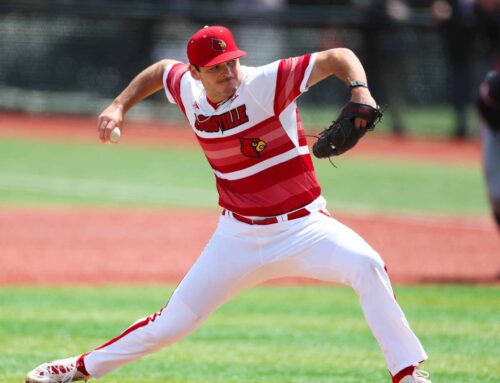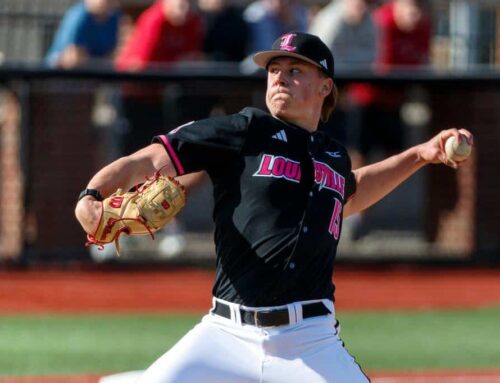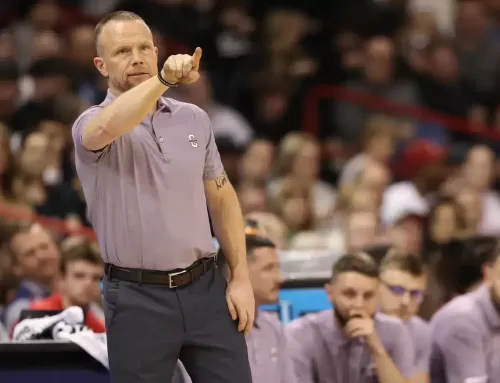The current collegiate generation, generation Y, has grown up surrounded by technology. Cassette tapes turned into CDs, which turned into digital music, which was downloaded off of computers that generation Z just can’t get away from. Computers have gone from bulky desktop appliances to convenient handheld devices that store just as much, if not more, data. Friendster changed to MySpace, which was pushed to the wayside by Facebook, that is now neck-and-neck with Twitter. All through this technological revolution, generation Y evolved in its own right.
The first thing most Y kids did when they got into college was update the social media world. Now that Y’ers are in college, it is no different – unless they represent their university on one of many collegiate athletic teams.
Here at the University of Louisville, an online monitoring program known as UDilligence is set to flag the use of 406 sex, drug and alcohol-related words. Under Socialverse, the University of Kentucky has a similar list of words, 370 of which are sports agents’ names. Previously, this list had included the words “Muslim” and “Arab” but after being questioned about it by The Courier-Journal, UK said they would be removed.
Other universities that make use of UDilligence include the University of Florida, Louisiana State University, Ole Miss, Texas Tech, Texas A&M, Baylor, New Mexico and Missouri. Socialverse clients are Mississippi State, Auburn and South Carolina. Similar organizations such as Varsity Monitor service Nebraska, North Carolina, Oklahoma, Texas and Villanova. If an athlete does use one of the blocked words, he/she will receive an e-mail informing him/her of the misconduct, which can potentially jeopardize his/her spot as a scholarship athlete.
For example, Angelika Uremovich of the Louisville Women’s Soccer team recently re-tweeted via quotes the comedic account @FatnRatchet. The tweet read,“the *uck u mean I cant snack at bulkbarn, yo *uck dis bitch!!” There were no asterisks in the original tweet. As previously mentioned, had she not added them, Uremovich could have endangered her standing as a scholarship athlete or at the very least her place in the starting lineup.
However, not all universities implement such programs. Thomas ‘TJ’ Servino is a sophomore track and field athlete at Dartmouth College in Hanover, New Hampshire. When asked about social media restrictions at his university, he said, “Because we’re a small school we don’t really get observed that closely. Basically, we just keep private team matters and comments on refs or injuries to ourselves.”
Further down along the Eastern Seaboard, a similar policy is followed. Hayley McMahon, a sophomore cross country athlete at the College of Charleston in Charleston, South Carolina when asked the same question did not mention the school’s size but said it was much an intuitive process.
“We’re all about being positive and supportive,” McMahon said. “We have nothing like [Louisville’s] policy. Also, in regards to our policy, the school does not censor what we can post online, but we know to be careful and mindful of what we post. So with saying that, I don’t think that student athletes should be stopped or restricted as to what they say. If they say something negative or offensive, then it only makes them look bad…everyone has the right to say what’s on their mind or how they feel.”
The Golden State is home to some of the biggest names in collegiate sports, such as the USC Trojans, UCLA Bruins and the California Golden Bears out of UC Berkeley. In great contrast to the “big name, big policy” undercurrent, on Sept. 27, 2012 the State of California by way of Governor Edmund G. Brown Jr. passed two laws to protect social media users. Assembly Bill 1844 and Senate Bill 1349 will prohibit employers and postsecondary institutions from asking students and current and/or potential employees to provide the username and passwords to their personal social networking accounts. Under the new laws, organizations retain the right to investigate misconduct via social media if the need should arise. SB 1349 is especially relevant because it makes illegal the practice of looking in on student athlete activities online. California is one of only four states with similar laws – Maryland and Illinois with laws that extend only to employees, and Delaware only students – leaving forty-eight states without any form of government policing their regulation of student athletes.
[email protected]
Photo courtesy Udiligience







